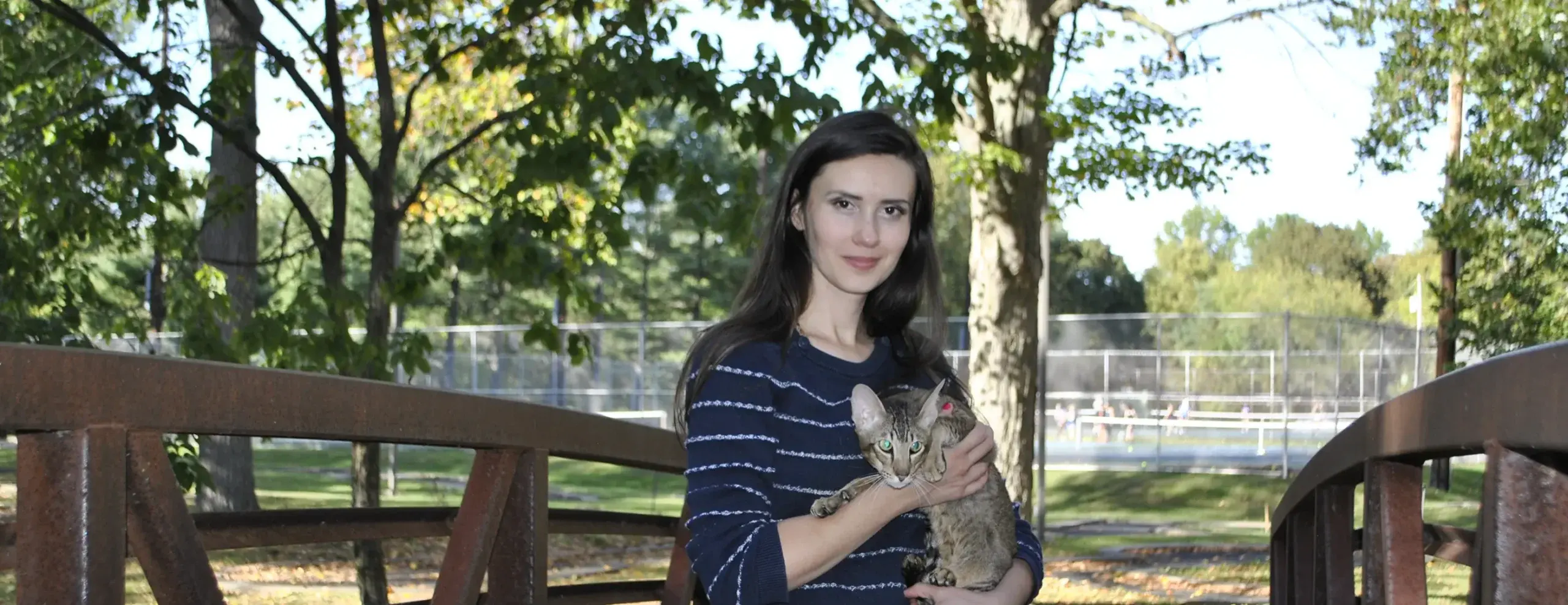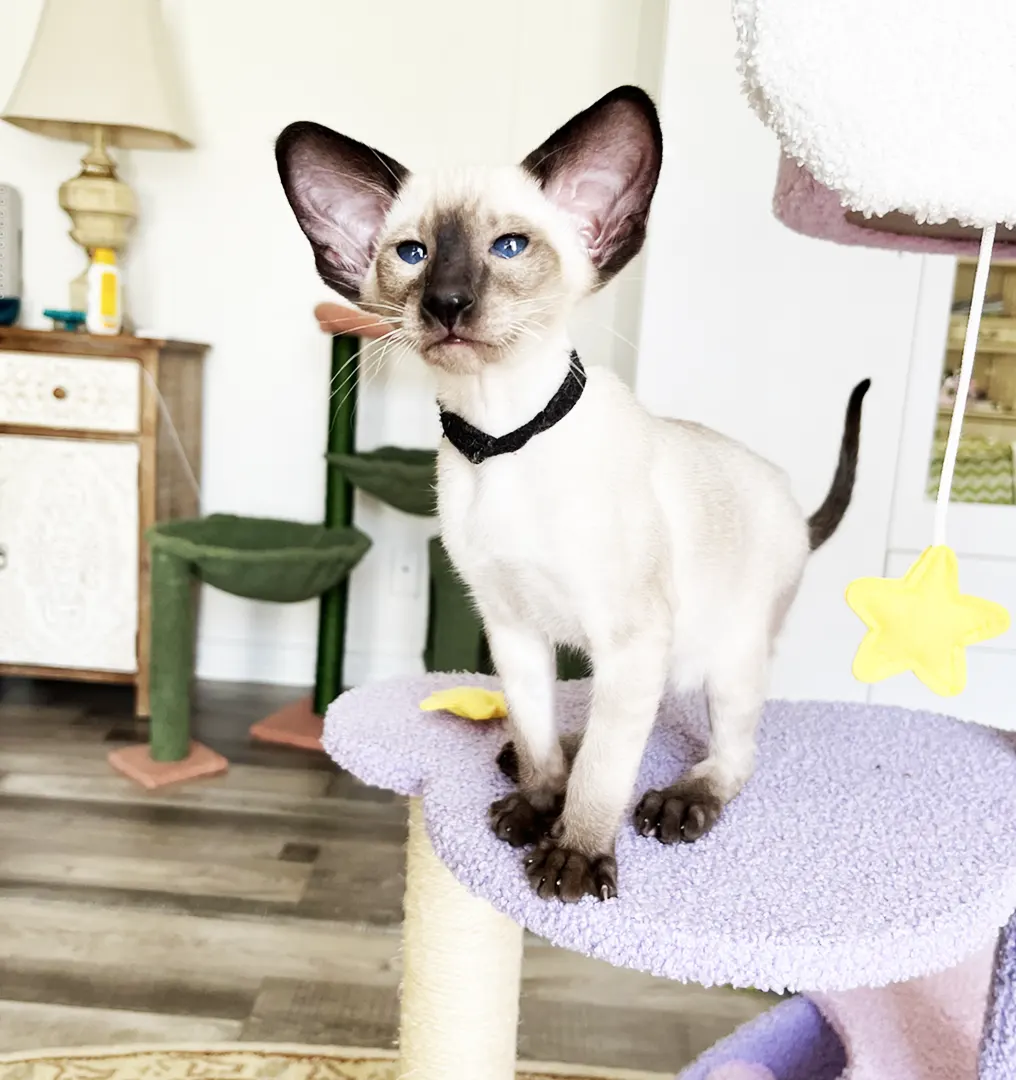There are several options available for shipping kittens to their new homes.
Following are details regarding our adoption process as well as how kittens prepare to transition to their new forever home.
For the first 4 weeks kittens are mostly under the care of their mom. Their weight and needs of the mother are monitored by myself daily.
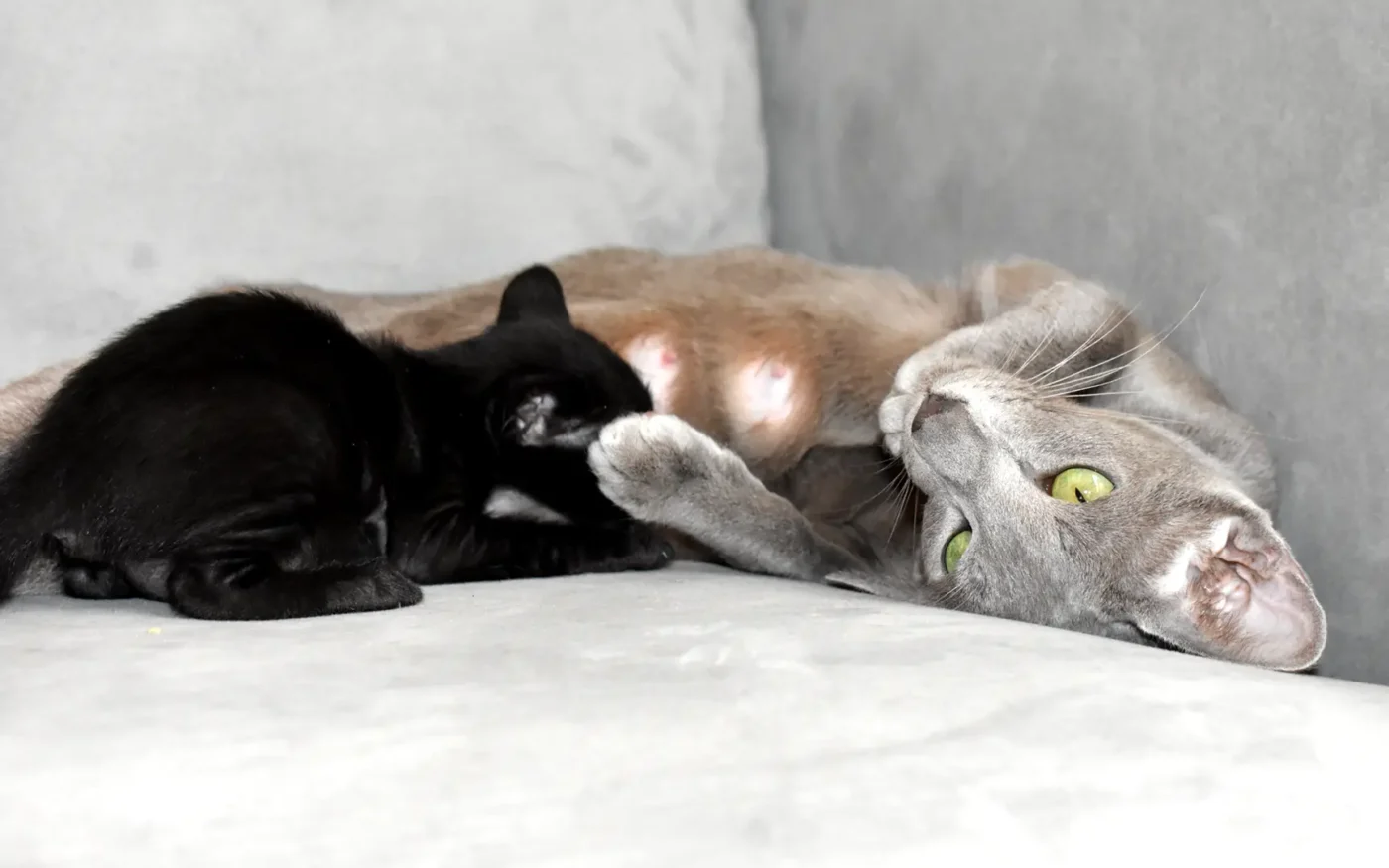
In 4-5 weeks I start offering kittens wet food.
At the age of 6 weeks, kittens start receiving prophylactics for the prevention of parasites.
At the age of 7-8 weeks, the kittens will pass their first wellness exam in a veterinary clinic and receive their first vaccinations against Feline Rhinotracheitis, Calicivirus, and Panleukopenia viruses.
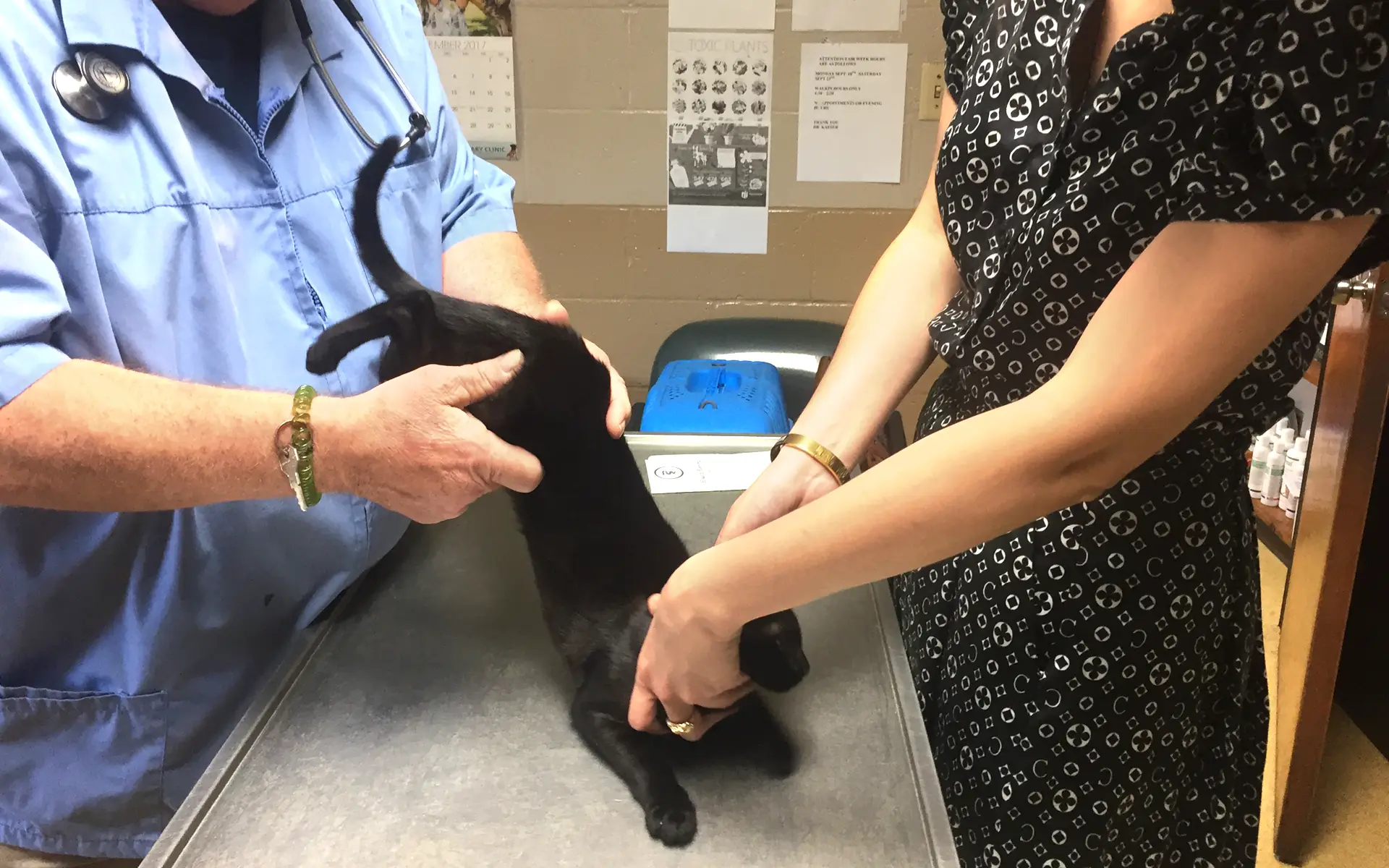
Three weeks after the first shot we will visit our veterinarian again for a wellness exam and a second round of vaccinations.
The next step is neutering/spaying. The kitten should be a suitable weight and in good condition for the surgery. If a kitten has some side effects after the second vaccination, low weight, or high temperature the surgery will be postponed. That is one of the reasons why I can’t tell new owners the exact date their kitten will be ready to go.
For the surgery, I drop the kittens off at the vet clinic in the morning and pick them up the following morning. Females have their stitches removed ten days after surgery. Males recover faster and have no stitches. Sadly sometimes males have complications. Occasionally during anesthesia the kitten's body relaxes and a testicle leaves the scrotum and travels into the abdominal cavity. In this case, the doctor performs an abdominal surgery to extract the testicle. After that, the kitten will have stitches on the belly. This rarely happens but we must consider the possibility. So please note that all dates which you see on the kitten’s page are tentative.
All our kittens pass Fiv/FeLV test during the surgery. This test requires venous blood. The blood sampling is easier and painless when the kitten is under anesthesia. For the same reasons, the microchip is inserted at the same time.
The kittens visit the licensed veterinarian at least three times.
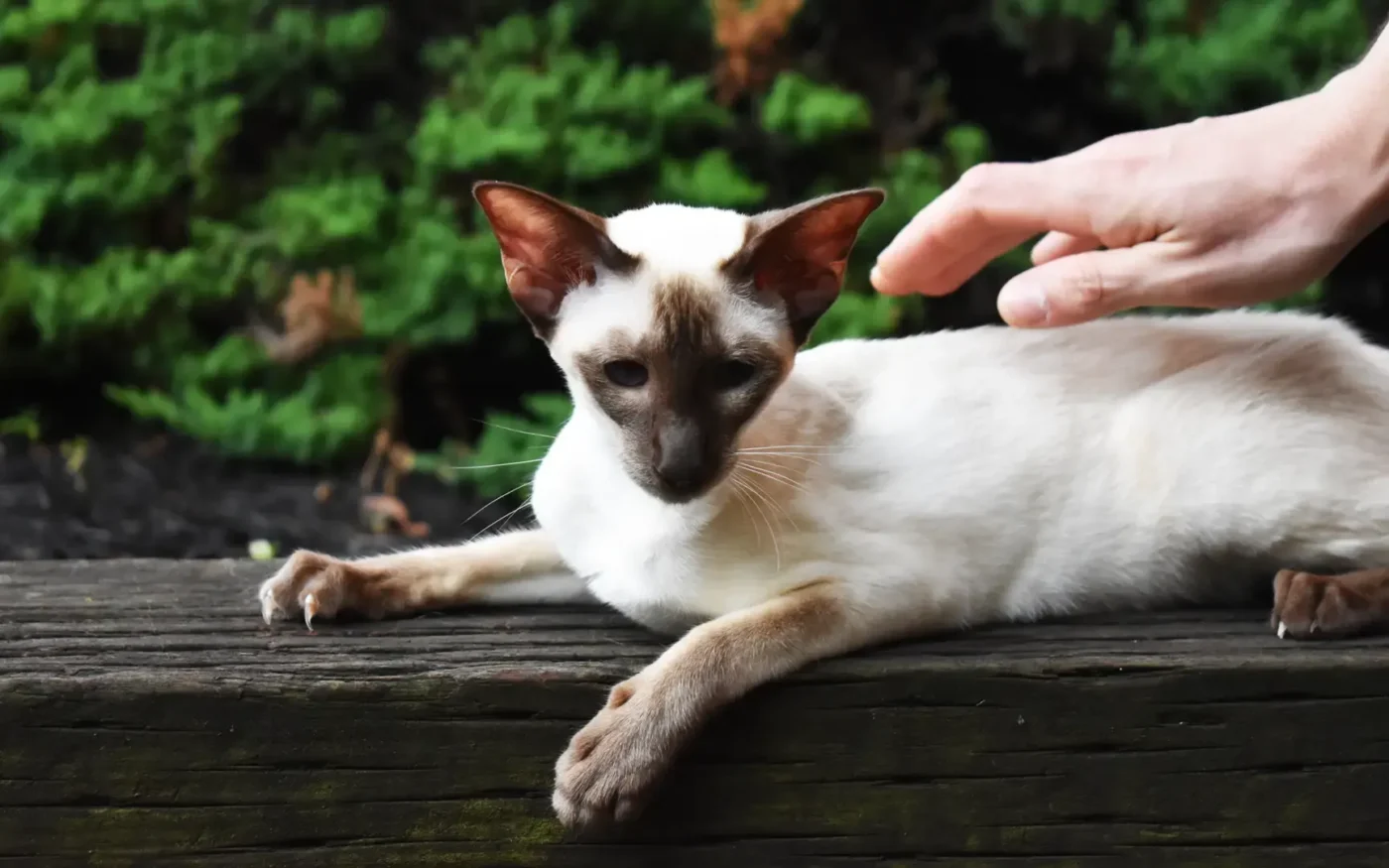
1-2 weeks before the kittens are ready to leave the cattery they pass a fecal test. We want to be sure they are parasite-free when you get them.
Rabies vaccination is required for shipping. This vaccination may be administered at 3 months of age or older.
When it is clear that the kitten is recovering and feeling well we can discuss the date of pick up or shipping. For shipping, we will determine and mutually convenient date. I will send a request to book the flight with either American Airlines or Alaska Airlines, as they are just two of the companies that ship pets now. The airlines will provide me with details of the flight. Unfortunately, I can't choose the time of departure/arrival. If the offered option works for you, I will book the flight. You will receive the phone number for the cargo department, and you can obtain all the information about your local cargo facility, including their address (which is usually a separate building), pickup time, and the required identification.
Please note that airlines will not transport warm-blooded animals when ground temperatures are higher than 85 degrees Fahrenheit or lower than 20 degrees Fahrenheit. This applies to origin, connection, and destination cities.
Kittens travel in a plastic carrier with a metal grated door. The kennel has adequate ventilation on three sides. The size of the kennel is appropriate for the kitten to stand erect, turn comfortably, and lie down with ease. I will also provide a blanket inside.
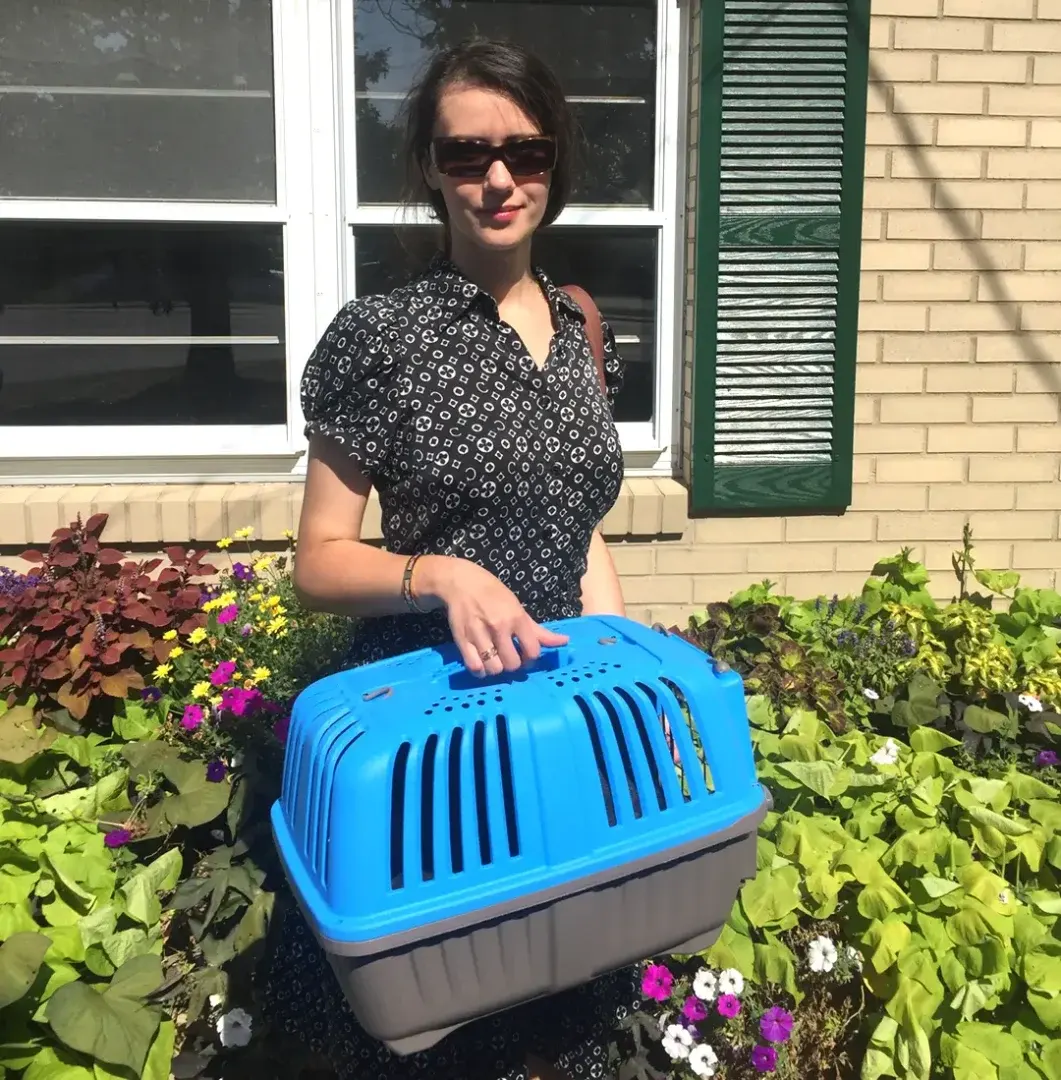
Kittens travel in a pressurized, heated, and ventilated cargo hold inside the airplane, located just below the passenger compartments. Tie-down straps secure your kitten's flight kennel to the deck of the cargo compartment.
For shipping, I will have to visit the vet one more time to get a health certificate, which is required for the flight, a breed verification form, an acclimation letter, and prepare some additional papers.
There's another option for shipping: a pet nanny. You can find one online, or I can provide you with the contact information of a pet nanny who has shipped our kittens to different states three or four times. Our businesses are completely separate, and you can contact her directly to get a quote. She can either drive or fly with the kitten.
Alternatively, you can always fly to Cleveland or Columbus on your own, and I will meet you at the airport to hand over the kitten. Another option is for you to come to our home to pick up the kitten.
You will get all vet records (proof of vaccinations, rabies certificate, fecal test result, Fiv/FeLV test result) and Breeder Slip - Registration paper of a kitten from TICA (The International Cat Association).
All the information about food, treats, litter, toys and etc I will send you by e-mail closer to the release date. All kittens are different and even siblings have different digestion. Sometimes I have to change food if I see that someone has digestive issues. There can be many factors. Sometimes the manufacturers of the pet food change the formula or method of meat processing and the kitten’s body rejects it. Sometimes after vaccination kittens lose their appetites and I offer them something new because I cannot allow them to lose weight, as there is a neutering/spaying surgery ahead.
We update the kittens' pictures on our website every 3-4 weeks. You will receive email notifications when new photos are available. Please note that kittens may appear larger in the pictures than they are in real life. The normal weight range for kittens is as follows: 1 month old – 300-500g, 2 months old – 600-1000g, and 3 months old – 900-1500g. After 3 months, kittens tend to gain weight more slowly.
You can follow us on Instagram and Facebook, where I post videos of kittens.
Thank you!

